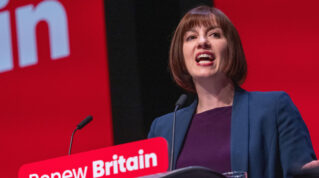The Abu Dhabi-owned private provider of special schools and children’s homes boosted profits by nearly 30 per cent last year to over £44 million amid “strong demand” for places, financial records show.
Witherslack Group’s accounts for the year to August 31, 2024, filed at the end of May, show its post-tax profits rose by 28 per cent in a year, up to £44.6 million in 2023-24. The companies turnover rose 20 per cent in that period.
It’s not clear how much of the rise is down to its private special schools, but its capacity at those settings rose eight per cent across the year to 2,162 pupils – while there was no change to the capacity of its children’s homes, accounts show.
It comes as education secretary Bridget Phillipson was reported to be considering new measures to “curb profiteering” by private firms running special schools.
‘Strong demand’ from councils
An “increased occupancy” boosted turnover, accounts stated, adding this has “arisen from a mixture of the development of existing sites and the opening of new sites increasing the capacity of the company”.
Government has pledged to introduce a “last resort” profit cap for private providers of social care provision as part of its schools bill reforms.
Analysis shows places in private special schools cost £61,500 on average, compared to just £23,900 in state schools. Around half of councils face bankruptcy over their soaring SEND spend, a poll suggests.
Witherslack said its profit increase was down to “sites moving towards maturity” – recently-opened schools generating more revenue as they reach full capacity.
It pointed to new special schools opening last year in Bristol, Walsall, and Tonbridge “progressing well”. Fees for two of the schools start at £90,000 and the other £98,000. One, Castlefell School in Bristol, charges up to £130,000 per pupil.
The accounts said that two more new schools opened in November 2024 – Leyland and Hinkley – while the company has acquired new sites to develop into schools in Cheshire, opening this year, and Hertfordshire, opening in 2026.
“The new school’s [sic] locations are due to strong demand in the areas and from a response by local authorities,” Witherslack’s accounts said. “The new sites will move to stronger levels of profitability in the budget for 2024-25 as they begin to fill.”
Witherslack’s accounts state an “industry leading” 97 per cent of its schools were ‘good’ or ‘outstanding’ as of August 2024.
However, two recent Ofsted reports have taken a more negative view.
Pontville Residential School was classed as “requires improvement to be good”, while Hall Cliffe School, which was rated ‘good’ at its standard inspection, was found to “not meet all of the independent school standards that were checked” at an additional inspection in December.
The firm declined to comment.
‘A crisis of supply’
Mubadala Capital, a subsidiary of the Abu Dhabi sovereign wealth fund Mubadala Investment Company, has a majority stake in Witherslack Group, with two private equity investors holding minority shares.
The firm is one of the major private providers of independent special schools, alongside other companies such as Outcomes First Group and CareTech, which are making millions from providing services for the state.
But Witherslack stands out among them for achieving strong profit growth last year, with profits equal to around a fifth of turnover.
SEND expert Matt Keer said: “Nothing sums up the failure of SEND system leaders and commissioners as clearly as this. The freedom to extract profit on this scale is bound to be a top-level target of the upcoming reforms”.
However he added “this is a crisis as much of supply as it is of demand. Most of the pupils who join independent special schools have already experienced placement failures in the state sector – sometimes several times over.
“If the independent specialist sector is throttled without giving state specialist placements the extra resources they need, then it won’t just be private owners that bear more risk – it’ll be kids too.”
The Local Government Association has previously raised concerns about the profits made by independent special school providers amid the crisis in the SEND system, with councils racking up huge long-term deficits on their high needs education budgets.
Arooj Shah, chair of the LGA’s children and young people board, said: “We urge the government in its white paper to deliver the comprehensive reforms the SEND system needs, so that it is more inclusive and improves educational attainment for children.
“This should also include putting councils on a stable financial footing by writing off councils’ high needs deficits, which are projected to reach £5 billion next year.”














Bit rich of you to draw attention to the company’s misuse of an apostrophe, when you have used a plural instead of a possessive in paragraph 2.